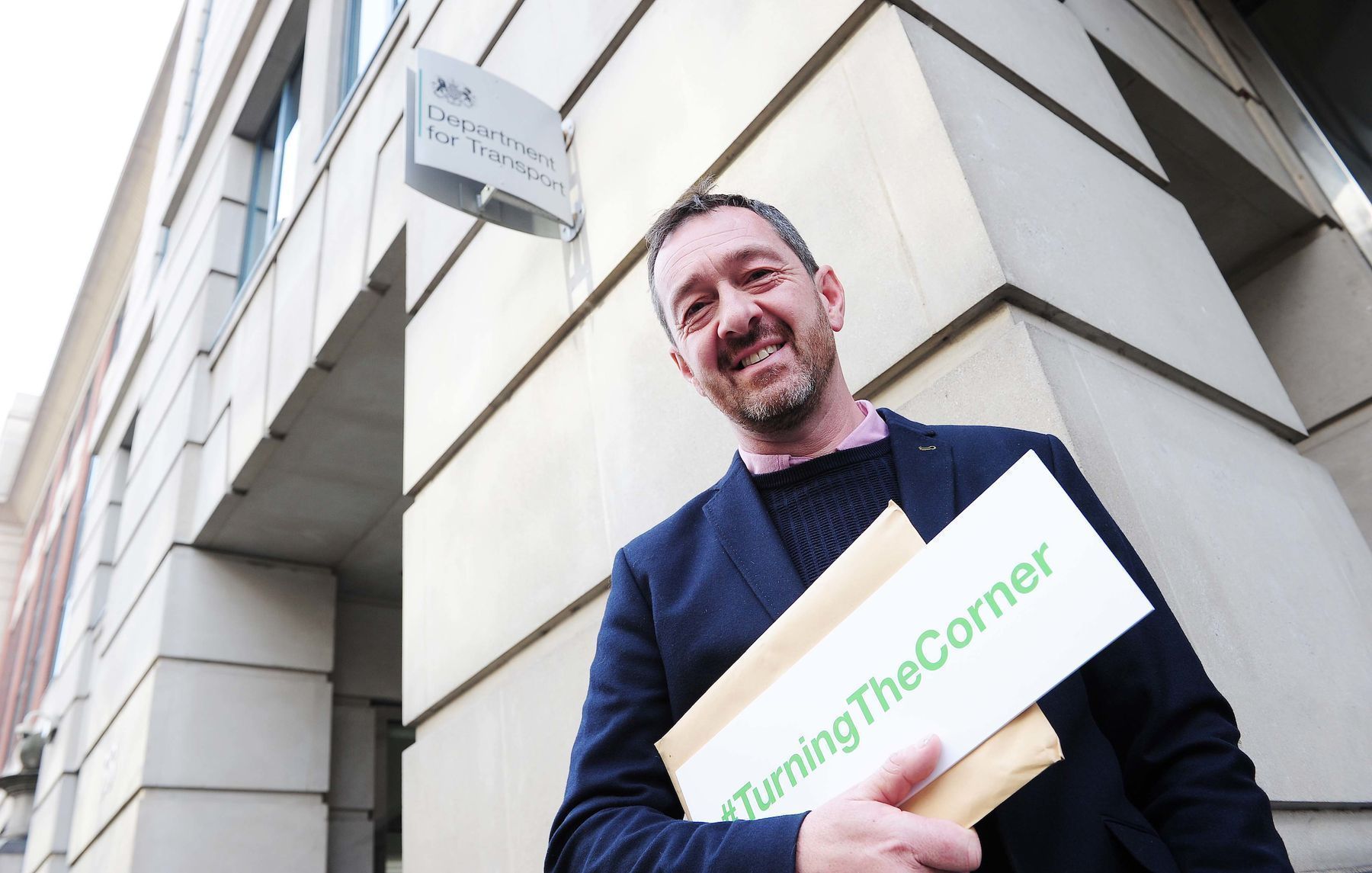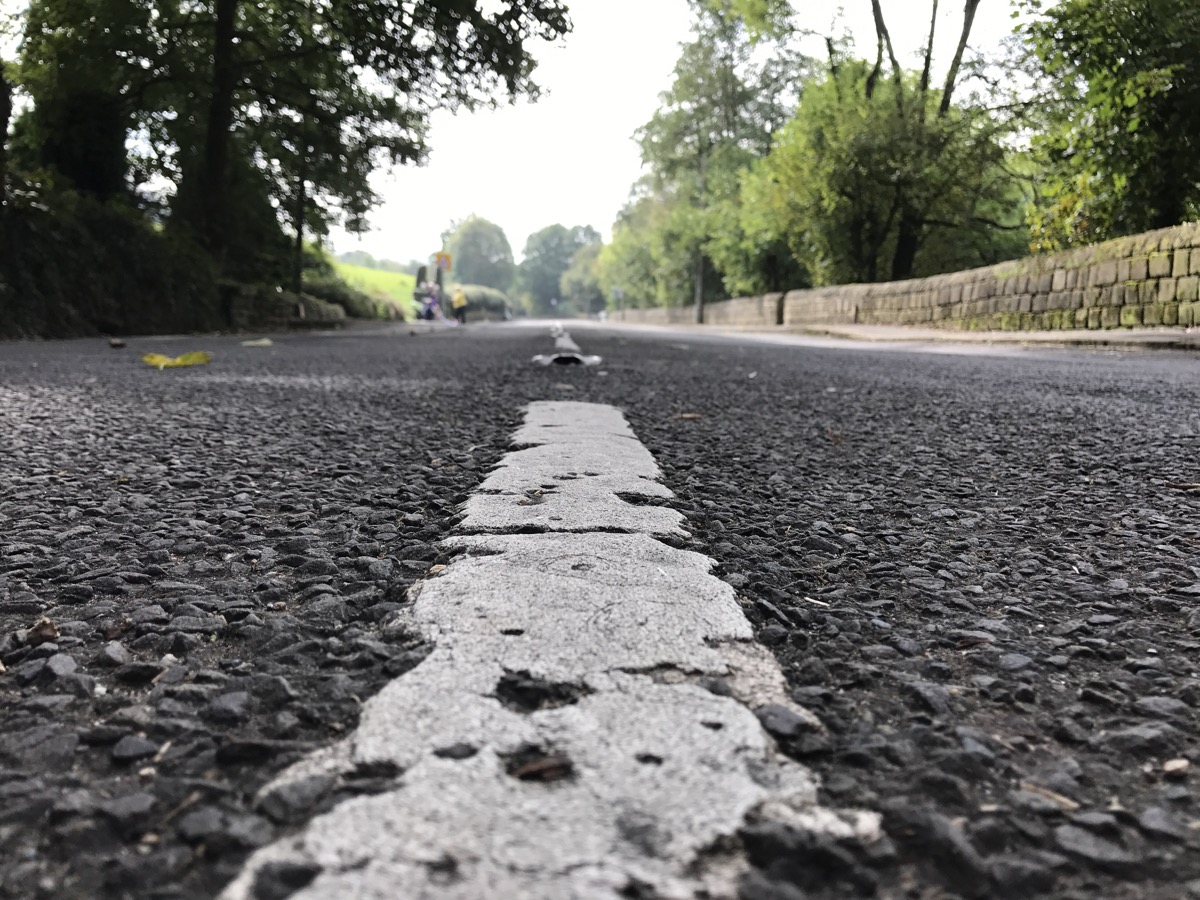As the Government’s consultation on the revision of the Highway Code approaches its final week, you’re urged to make your voices heard by responding to it yourself. The consultation is the first wide-ranging revision of the code for a generation and closes on Tuesday 27 October.
Both Cycling UK and British Cycling are encouraging people to respond as individuals, to help show the level of public support for the changes.
Cycling UK has identified 10 key changes to the code that it believes will improve rider safety. These are summarised in this document. The three that they consider most significant are:
- the introduction of either a ‘hierarchy of users’ or ‘hierarchy of responsibility’, recognising that road users that pose greater risks to others should have a higher level of responsibility,
- a new rule tackling ‘left hook’ collisions, giving priority to whoever is going straight ahead at an unsignalised junction (this short video explains how it would work),
- new rules to address dangerous overtaking and ‘close passes’, with a guideline minimum safe passing distance of 1.5m at 30mph, 2m at higher speeds.

Speaking as British Cycling’s Policy Adviser, Chris Boardman said:
Latest Singletrack Merch
Buying and wearing our sustainable merch is another great way to support Singletrack
“We know from our experience with temporary bike lanes and low-traffic neighbourhoods that changes which only seem to benefit cycling are likely to face opposition. That’s why it’s crucial Government hears from all those people who simply want our roads to be safer, civilised and welcoming spaces for people, regardless of how they travel.
“Some will question the usefulness of updating the Highway Code, but as the go-to reference document for courts and instructors, the proposed amendments really do give us the chance to reset some of the core principles which guide how we use our roads. Most importantly, the proposed changes will ensure we all have to look out for those more vulnerable than ourselves by removing many of the ambiguities around how we use junctions and overtake others.
“In the time it takes to make a cup of tea you can have your say and ensure this golden opportunity doesn’t go to waste.”
In their press release, British Cycling said ‘It’s critical that the voices and experiences of individual cyclists are also heard, to ensure the Government understands the real-life impact which changes to the code will have on all of our lives.’
How to respond
- You can submit your own response online here
- You can email your own response to HighwayCodeReview2020@dft.gov.uk
- You can generate a semi-personalised draft email via the Cycling UK website.
“In the time it takes to make a cup of tea you can have your say and ensure this golden opportunity doesn’t go to waste.”
Chris Boardman
Summary of British Cycling’s response
British Cycling’s response has focused on four key areas: junction priority, close passing, the hierarchy of road users, and riding two abreast.
Junction priority
We support the proposed changes to Rules 2, 3 and 76, and the new Rule H3, which clarifies the existing ambiguity and states that there should be a universal right to give way when turning. As we highlighted in our Turning the Corner campaign, two thirds of all serious incidents occur at junctions and this is not helped by the fact that the Highway Code currently includes 14 contradictory statements on the matter.
Boardman: “Imagine that you’re driving down a road and you want to turn left into a side street. If there’s a cyclist on your inside, you wait for them to go straight on before you turn left. It’s simply writing down what good drivers already do.
“Similarly, someone on a bike turning left should always let someone walking across the mouth of that junction finish before turning.”
Close passing
We are also supportive of the proposed wording on overtaking, which removes the existing ambiguity. Our 2019 State of Cycling report found that 87% of British Cycling members are close passed at least once a week, and though these dangerous incidents are not reflected in Government statistics we know that they are a huge deterrent to more people riding.
Boardman: “The police attribute passing too closely as a factor in a quarter of all serious collisions between cyclists and vehicles. Close passing is ostensibly a casual disregard for human life, it can be absolutely terrifying when you’re on the receiving end and it leads to many people stopping cycling altogether.”
Hierarchy of road users
A formalised hierarchy of road users, which protects the most vulnerable on our roads and places clear requirements on those who have the ability to cause the greatest harm, benefits us all. This isn’t about shifting blame – it’s simply a recognition of the fact that some road users have the capacity to do far greater harm than others – this has implications for how cyclists behave around pedestrians too.
Boardman: “It’s simply a civilised way to use our streets, where those that can do the most harm are obliged to look after the more vulnerable. Who wouldn’t want that for their family and kids?”
British Cycling will be setting out its concerns with the new wording proposed for Rule 66 (on riding two abreast) later this week.






Done.
I thought the recommendation to ride 50cm out from parked cars was a bit bonkers in case of dooring… How many car doors are only 50cm? 1.5m would be the minimum you can ride out from cars if you’re not going to swerve into traffic on a car door opening…
I’ll be on this at my next tea stop. Which is about now .
Thanks for rasing this.
And I’m with Chipps… 50cm (less than 20″, or 1ft 8″ in English money), is waay too small unless you’re 100% sure nobody is in the car.
Done. But based on Hatty Mancock’s comments on the UK not wanting to seem anti motorist what is the point?
Thanks for publishing this. Will get on with it.
Done
Done
Thanks for bringing this to our attention, let’s hope some good comes out of it.
done and shared
I also don’t fancy passing a horse at 15mph
Done, but I can’t help thinking most of it is useless in a practical sense(?). It’s almost entirely advisory (the word SHOULD is used almost exclusively, MUST is used infrequently), so there’s nothing compelling anyone to adhere to most of the changes. I also objected to the suggestion that training was a good idea (not the training per se, that’s a good idea), just the fact that writing it down to me implies it could be used as a loophole to diminished responsibility in the event of an accident (sorry I wiped the cyclist out m’lud, but he hadn’t had any training so it’s not entirely my fault).
Thanks for sharing this. Unfortuntaly, I share the cynism of others. Rules are only there for those likely to break those rules and the chances are they won’t even read the revisions to the HC, never mind abide by them. Having said that, if we do nothing, nothing changes, so I’ve said my two penn’orth and hope that these revisions do make a difference.
For anybody feeling cynical about whether this is worth their time or even if the rules make a difference, having been to court as a witness to prosecute a driver who ran my friend off the road I would beg you to submit your tuppence worth; we were able to cite the highway code and get the offender a driving ban. Please do exercise your democratic right to influence policy by partaking in public consultations, they do change things (albeit slowly).
Am submitting my responses now – and have suggested that ‘Should’ is replaced by ‘Must’ in almost all circumstances. ‘Should’ means **** all! “Well, I should have waited till it was safe to overtake but I was in a rush for fish and chips so mowed the ped/cycle/horses down anyway”
Pretty much my exact words too b_s_n!
Done. Lets hope something good comes out of this.